What Seafood Can You Eat While Pregnant [11 Best]
Are you a seafood lover who’s expecting a little one? Congratulations!
Pregnancy is an exciting time, but it can also be overwhelming, especially when it comes to what you can and can’t eat.
Seafood is a great source of protein and omega-3 fatty acids, but not all types are safe for pregnant women.
In this blog post, we’ll explore what seafood you can eat while pregnant, so you can enjoy your favorite dishes without any worries.
Let’s dive in!
What Seafood Can You Eat While Pregnant
Several types of seafood are safe to eat during pregnancy. These include shrimp, pollock, tilapia, cod, catfish, and canned light tuna.
The American Pregnancy Association recommends 2–3 servings of lower-mercury fish per week or 8–12 ounces.
Some other types of fish that are safe to eat in moderation include bluefish, halibut, mahi-mahi, and snapper.
The FDA recommends at least 8 ounces of seafood per week for pregnant women but advises them to avoid high-mercury fish such as shark, swordfish, king mackerel, and tilefish.
Learn more about seafood to avoid when pregnant.
Seafood pregnant women can eat
The following are some common seafood you can eat in moderation while pregnant:
1. Shrimp
Due to its high protein content and low-fat content, shrimp is a fantastic seafood choice for expectant mothers.
Moreover, it provides crucial nutrients for fetal growth and development, including zinc, iron, and vitamin B12, among others.
Furthermore, shrimp is a healthy seafood option during pregnancy because it has low levels of mercury and other pollutants.
To reduce the risk of bacterial illness, it’s crucial to make sure the shrimp is properly cooked before eating.
2. Crab
Pregnant women can have crab, a low-fat, high-protein seafood alternative, without any problems.
Moreover, it is an excellent source of selenium and vitamin B12, two vital vitamins and minerals.
It is possible to consume crab as a main course or to include it in salads, soups, and sandwiches. Crab is a flexible seafood option.
However, pre-cooked crab legs or claws offered in the refrigerator department of grocery shops shouldn’t be consumed by expectant women, as there may be a higher risk of bacterial contamination.
3. Salmon
Omega-3 fatty acids, which are essential for the growth of the fetal brain and eyes, are found in abundance in salmon.
It is a healthy seafood option for pregnant women because it is also low in mercury and other pollutants.
Salmon is a fantastic source of protein, vitamin D, and vitamin B12 in addition to its high omega-3 content.
4. Tilapia
Tilapia is a mild-flavored, lean fish that is safe for pregnant women to eat because it has a low mercury content.
Moreover, it is a good source of protein as well as important vitamins and minerals like phosphorus and vitamin B12.
Tilapia is a healthy choice for pregnant women who are trying to control their weight because it has fewer calories and fat.
5. Catfish
Pregnant ladies can consume low-fat and high-protein catfish without any problems.
It is also a good source of vitamin B12, which is crucial for the growth of the embryonic brain.
Catfish is a healthy seafood option during pregnancy since it is low in mercury and other pollutants.
But, be cautious to properly cook catfish to eliminate any harmful pathogens.
6. Cod
Cod is a mild-flavored, low-fat fish that is a rich source of protein, as well as vital nutrients like selenium and vitamin B12.
It is a healthy seafood option for pregnant women because it is also low in mercury and other pollutants.
Cod is a flexible fish choice that can be baked, grilled, or sautéed and is simple to use in several different meals.
7. Sardines
The development of the fetal brain and eyes depends on omega-3 fatty acids, which are abundant in sardines, tiny, oily fish.
They are a healthy seafood alternative for pregnant women because they are likewise low in mercury and other pollutants.
The growth of a fetus’s bones depends on protein and vitamin D, both of which are abundant in sardines.
Moreover, sardines contain a lot of calcium, which is crucial for a baby’s bone growth.
8. Scallops
Low-fat, high-protein seafood options like scallops are healthy for pregnant women to eat.
Moreover, they are a good source of magnesium and vitamin B12, two crucial vitamins and minerals.
In addition to being grilled, sautéed, or added to pasta dishes or salads, scallops are a flexible seafood option.
In addition to being high in protein and low in mercury, scallops are a fantastic seafood choice for expectant mothers.
9. Oysters
Low-fat, high-protein seafood options like oysters are suitable for pregnant women to eat in moderation.
Also, they’re a good source of important vitamins and minerals including zinc and vitamin B12.
However, due to the possibility of bacterial infection, pregnant women should refrain from eating raw oysters.
Cooked oysters are delectable and frequently included in seafood stews and chowders.
10. Pollock
Low in mercury and high in protein and low in fat, pollock is a fish.
Moreover, it is a good source of selenium and vitamin B12, both of which are crucial for the growth of the baby’s immunological and nervous systems.
Pollock should be fully cooked for pregnant women to eradicate any harmful microorganisms.
11. Mussels
Mussels are a low-mercury, high-protein, and iron seafood that is a healthy choice for expectant mothers.
Keep in mind that Mussels are a strong source of vitamin B12, which is crucial for a baby’s nervous system development.
Guidelines for eating seafood while pregnant
Here are some guidelines for eating seafood while pregnant:
- Eat 2-3 servings (8-12 ounces total) of fish per week, choosing a variety of fish.
- Choose fish from the “Best Choices” or “Good Choices” categories, and avoid fish with high levels of mercury, such as shark, swordfish, king mackerel, and tilefish.
- Choose seafood that is cooked thoroughly to kill bacteria and viruses
- Avoid eating raw or undercooked seafood, including sushi, sashimi, and ceviche.
- Limit the intake of fish with high levels of environmental toxins such as PCBs and dioxins, which may be found in large, predatory fish such as sharks and swordfish.
- Pregnant women should consume fish oils that are low in mercury, such as fish oil supplements or DHA-enriched eggs.
- Raw or undercooked seafood, eggs, and meat should be avoided during pregnancy.
- Pregnant women should limit white (albacore) tuna and tuna steaks to 6 ounces (170 grams) per week.
Potential benefits of eating seafood during pregnancy
Here are some potential benefits of eating seafood during pregnancy that is supported by scientific research:
- Brain development: The omega-3 fatty acids found in seafood, particularly DHA, are crucial for fetal brain and eye development.
- Reduced risk of preterm birth: Consuming seafood during pregnancy has been associated with a reduced risk of preterm birth.
- Improved infant health: Eating seafood during pregnancy can improve fetal and infant health outcomes, including improved birth weight and length, reduced risk of allergies, and improved immune function.
- Lower risk of depression: Consumption of seafood during pregnancy has been associated with a reduced risk of maternal depression.
- Reduced risk of preeclampsia: Regular consumption of seafood during pregnancy may lower the risk of developing preeclampsia, a serious pregnancy complication.
- Lower risk of childhood obesity: Eating seafood during pregnancy may reduce the risk of childhood obesity in offspring.
- Improved maternal health: Consumption of seafood during pregnancy has been associated with a reduced risk of hypertension and gestational diabetes in mothers.
- Nutrient-rich: Seafood is a nutrient-rich food that can provide expectant mothers with essential vitamins and minerals like protein, vitamin D, and iodine.
It is important to note that pregnant women should avoid consuming high-mercury fish like shark, swordfish, and king mackerel, which can be harmful to fetal development.
Instead, they should focus on consuming lower-mercury fish like salmon, sardines, and trout.
Pregnant women should also talk to their doctor or a registered dietitian to develop a safe and healthy eating plan during pregnancy.
Frequently Asked Questions
Can I eat seafood during pregnancy?
Yes, seafood can be a healthy part of a balanced pregnancy diet, but it’s important to choose safe options.
What kinds of seafood are safe to eat during pregnancy?
Low-mercury options like shrimp, salmon, tilapia, cod, and canned light tuna are generally considered safe for pregnant women.
How much seafood can I eat each week while pregnant?
The FDA recommends pregnant women eat 8 to 12 ounces of seafood per week, but avoid high-mercury fish like sharks and swordfish.
Can I eat sushi during pregnancy?
Raw or undercooked seafood should be avoided while pregnant, so sushi is generally not recommended unless the seafood has been cooked or is a vegetarian option.
Can I eat smoked or canned seafood while pregnant?
Smoked seafood that is shelf-stable or cooked is safe to eat while pregnant, as are canned varieties of light tuna, salmon, and sardines.
Is it safe to eat seafood from restaurants while pregnant?
As long as the seafood is properly cooked and served hot, it should be safe to eat.
However, it’s always a good idea to ask how the seafood is prepared and cooked to be sure.
Conclusion
In conclusion, seafood can be a great source of nutrition for pregnant women, but it’s important to be mindful of what types of seafood you consume.
Opt for low-mercury options like salmon, shrimp, and tilapia, and avoid high-mercury fish like swordfish and king mackerel.
By following these guidelines, you can safely enjoy the benefits of seafood during pregnancy.
Remember to always consult with your healthcare provider before making any significant changes to your diet.
References:
Fish Consumption During Pregnancy.
Update on Seafood Consumption During Pregnancy.

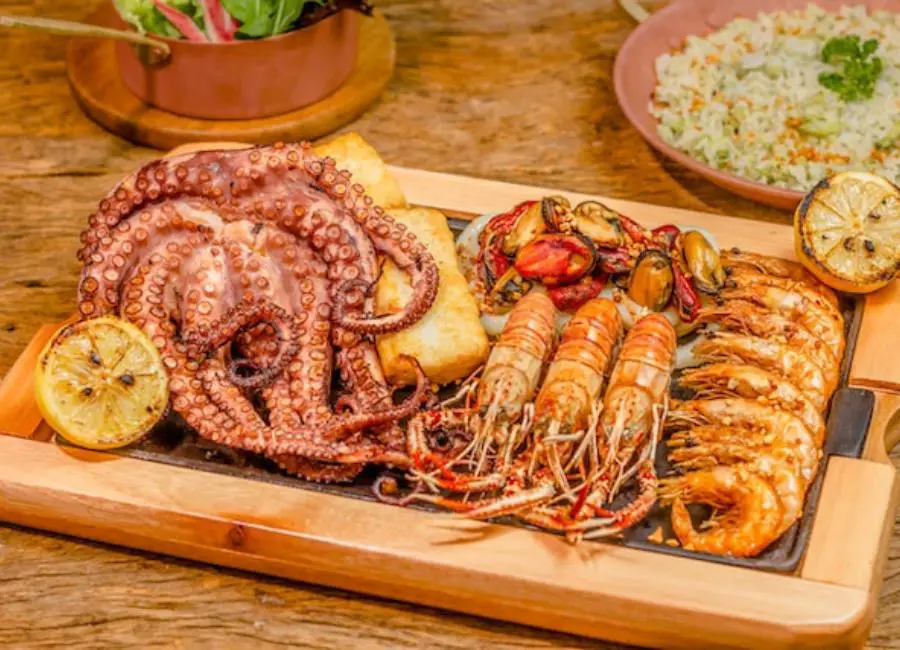
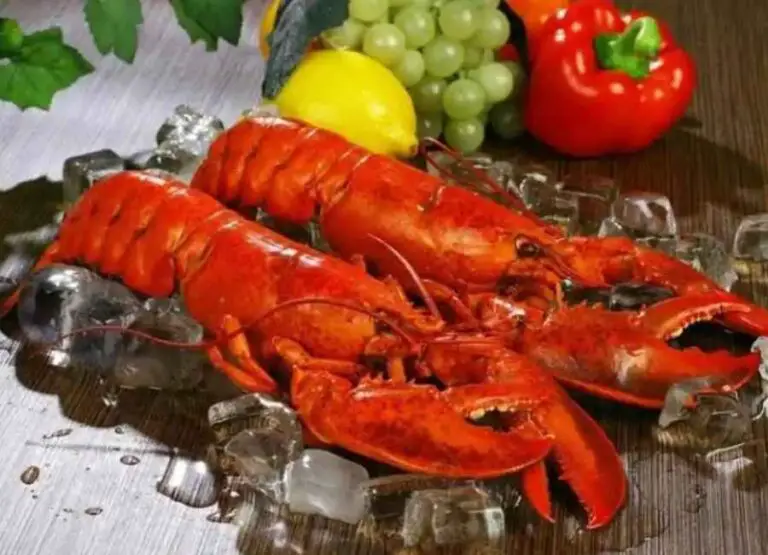
![Can You Eat Crab Raw [Answered]](https://foodcreeks.com/wp-content/uploads/2023/02/Can-you-Eat-crab-raw-768x555.jpg)
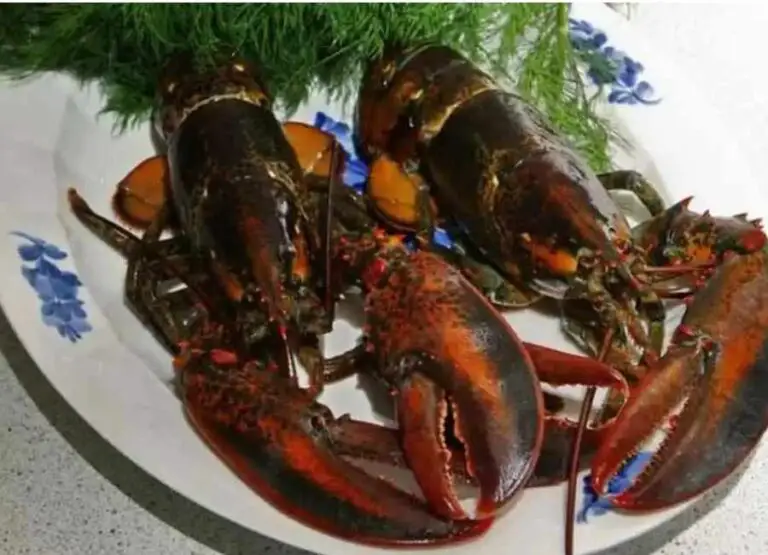
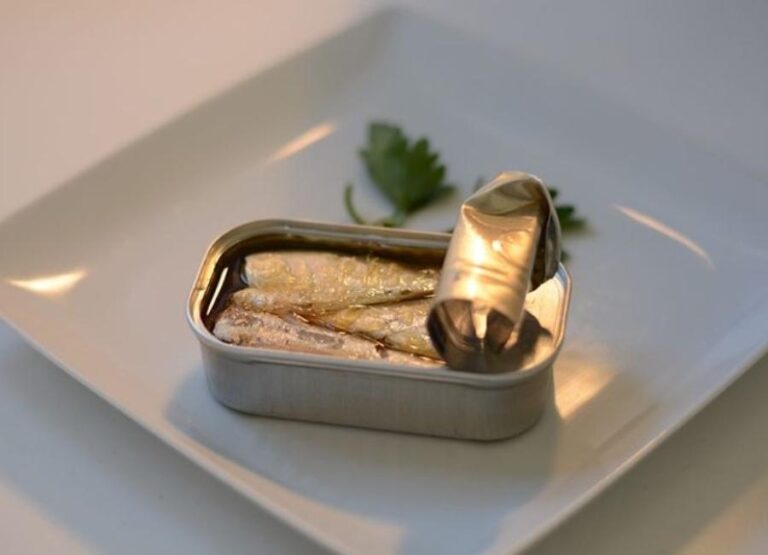
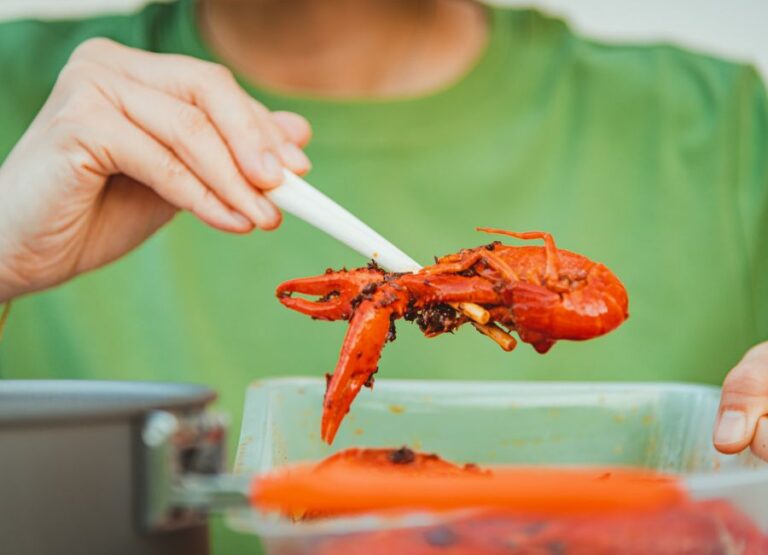
![Can Lobster Be Eaten Raw [Answered]](https://foodcreeks.com/wp-content/uploads/2023/02/Can-lobster-be-eaten-raw-768x555.jpg)